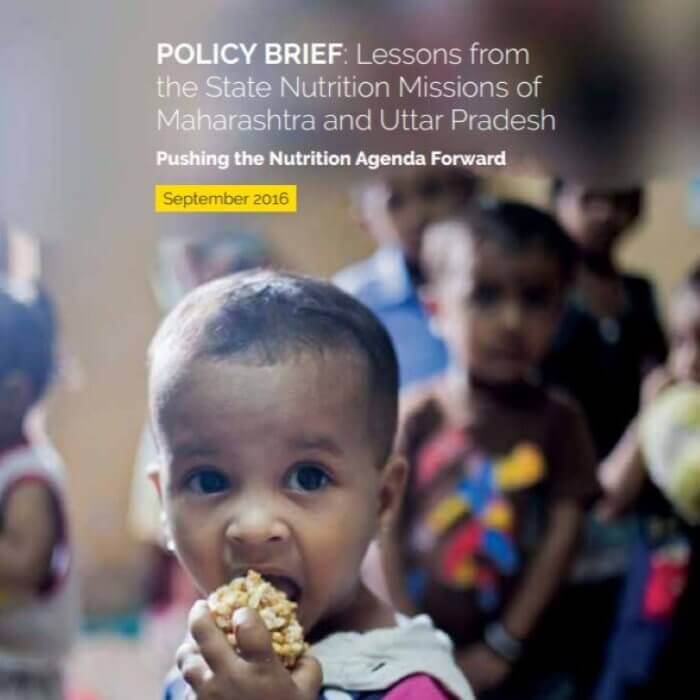How can nutrition programming be improved at the state level in India? R4D’s policy recommendations are based on documentation of State Nutrition Missions.
The Challenge
India is home to millions of women and children who are undernourished. Although India’s rates of undernutrition have been improving—rates of stunting declined from 48 to 39 percent from 2005-06 to 2013-15—the country still lags behind the World Health Assembly’s targets for stunting. Due to variability in health and nutrition contexts by state across India, nutrition service delivery needs to be governed and monitored at the state level.
The Government of India has implemented several major programs and policy initiatives to help reduce the alarming rates of undernutrition in the country. However, nutrition is often just one of many focus areas for state governments. Nutrition service delivery risks being lost in the shuffle if states do not have oversight or accountability mechanisms for nutrition.
The Opportunity
To support nutrition governance and oversight, a number of states created State Nutrition Missions (SNM) to provide impetus for and to coordinate a multi-sectoral approach to combat undernutrition. UNICEF is providing high level advocacy and technical support to state governments to establish SNMs with the ultimate goal of improving delivery of essential nutrition services. State Nutrition Missions serve as an overarching governance body to improve coordination, communication, and strategic planning for nutrition. Maharashtra was the first state to instate a SNM in 2005 which served as a model for other states such as Uttar Pradesh, whose SNM began in 2014. As older SNMs evolve and as new SNMs are established, the opportunity to reflect on lessons learned and past experiences will help shape future SNM strategy discussions and recommendations.
Our Work
R4D partnered with Amaltas and UNICEF-India to document the evolution of the State Nutrition Missions in Maharashtra and Uttar Pradesh. Through this work, we documented the history of the Missions including drivers of success and lessons learned.
Based on our analysis, we identified five critical enablers and five key activities that contributed to the success of the Nutrition Missions in these two states.
Key enabling factors and resources that support the State Nutrition Missions include:
- strong program leadership
- political support across sectors (including state Women and Child Development and Public Health departments)
- policy and program advocacy enabled by access to data and linkages with civil society to raise awareness for nutrition
- strong technical support provided by UNICEF and other partners throughout the SNM lifecycle.
Key SNM activities that contribute to improved nutrition service delivery include:
- fostering innovative and adaptive solutions to implementation challenges;
- co-opting multi-stakeholder partnerships;
- supporting convergence of public sector efforts;
- enabling evidence-based, data-driven decision making;
- and building human capital to support program delivery including through technical and leadership training for frontline workers.
These enabling factors and activities are described in the documentation reports with examples from each state. Cross-cutting themes that emerged across states were used to generate policy recommendations for states considering adopting the State Nutrition Mission approach.















